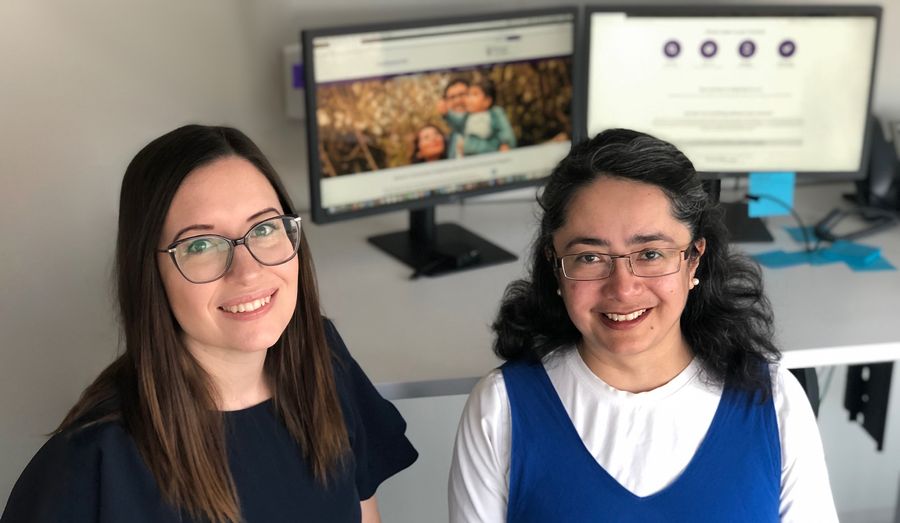New registry to boost brain research participation

Londoner Sofia De Menech and her two children understand the importance of participating in research. All three have taken part in neuroimaging studies at Western.
“We participate in research studies to help researchers gather more information that could be useful for us in the future,” De Menech said. “For example, we could find out that people with certain traits are predisposed to diseases like dementia.”
Neuroscience researchers at Western have long worked with members of the London community to gather data for their studies. Launched this week, OurBrainsCAN is a central participant registry for cognitive research at Western with the goal to increase community involvement in these world-class brain studies. The registry – located at ourbrainscan.uwo.ca – was developed by BrainsCAN, Western’s cognitive neuroscience research initiative.
“For our research discoveries to really apply to Canadians in general, our research participants have to be people from different backgrounds and of different ages,” said Ingrid Johnsrude, Director of the Brain and Mind Institute, one of the leaders of OurBrainsCAN. “This new participant registry will not only give community members an easy and private way to sign up for research studies, but it will also allow us to do better science by engaging the whole community, and not just the young university students who traditionally are the majority of our research participants.”
In the past, connecting with the wider community for participation in studies hasn’t been a simple process. Western neuroscientists have been studying various aspects of brain health and disease for decades, yet despite the world-class research taking place, some clinical trials are not able to recruit enough participants on time.
“One of the most challenging aspects of successful study completion is participant recruitment and retention. This isn’t a London problem or a Western problem; it’s a research problem,” said Loretta Norton, BrainsCAN Clinical Research Coordinator and co-developer of OurBrainsCAN.
OurBrainsCAN was developed to make registration for all neuroscience studies simple and convenient for participants, while maintaining confidentiality. Once individuals are registered, they are only contacted for studies that they might be eligible for, and can participate as little or as often as they wish. The registry also gives potential research participants the opportunity to learn about ongoing neuroscience research at Western, and to sign up for individual studies.
“Think of all the questions researchers can answer if they have data from a more sizeable sample that is more representative of our community,” Norton said. “They’re not drawing on 20, but instead a list of hundreds of participants that fit their criteria. Studies will be more representative of the population being studied.”
“When people approached us about participating in research before OurBrainsCAN, there was no centralized way for them to look for brain studies that might interest them,” said Dr. Laura Gonzalez, BrainsCAN Community Research Coordinator and co-developer of OurBrainsCAN. “The goal of OurBrainsCAN is to engage the public and the community in cognitive neuroscience research. We can’t do this research without volunteers.”
A variety of studies are available for participants to take part in, including studies related to mental health, memory, language and child development, Parkinson’s disease, depression and autism. Both healthy individuals and those with diagnosed clinical conditions are needed for this research. OurBrainsCAN also includes some studies that can be completed through online, web-based tasks, allowing participants from all over the world to contribute to neuroscience research studies at Western.
“Everyone should participate in research studies so that we can all help one another to live better lives in the long run,” De Menech said. “Even if we can’t necessarily use the findings from the research during our own lifetime, the data will help our children and future generations.”
OurBrainsCAN was developed by BrainsCAN, Western University’s $66 million Canada First Research Excellence Fund initiative in cognitive neuroscience.
* * *
If you’d like to get involved in cognitive neuroscience research at Western, click here to register as a participant or a researcher at OurBrainsCAN.






